WATCH: 'Hope for my kids': Indigenous Australians voting Yespublished at 06:40 BST 14 October 2023
'Hope for my kids': Indigenous Australians voting Yes
Australians have voted against a historic Indigenous referendum
Australia's national broadcaster ABC projects that three states have voted no, effectively defeating the referendum
Australia's Prime Minister Anthony Albanese said he respected the outcome of the vote and called on Indigenous people to maintain their hope
Voters were asked to enshrine an Indigenous advisory body in the constitution that recognises Aboriginal and Torres Strait Islander people as the nation’s First Peoples
No campaigners said the Voice to Parliament racially divides the country and have questioned how it would operate
But Yes advocates said it was a modest yet profound change allowing Indigenous Australians to take their 'rightful place' in their own country
Edited by Ayeshea Perera
'Hope for my kids': Indigenous Australians voting Yes
What Indigenous people against the Voice want instead
 Tiffanie Turnbull
Tiffanie Turnbull
Reporting from Darwin/Larrakia Country
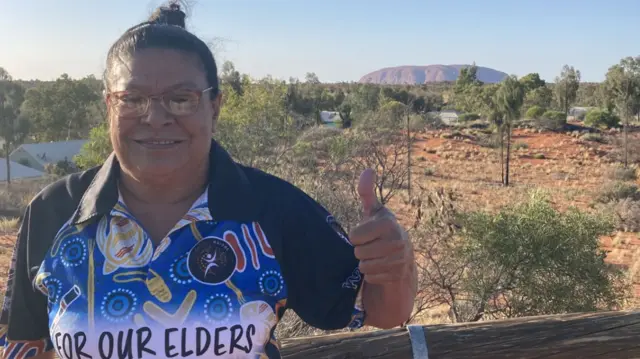
Valmae Morrison, known as Mae Mae, was at the Uluru Convention in 2017 where more than 250 Indigenous representatives from across Australia debated the best way forward for their people.
“There was a lot of teary eyes, a lot of emotions, going through the convention room, and outside as well,” said Mae Mae - a Torres Strait Islander and Aboriginal woman from North Queensland.
When she signed the Uluru statement, she felt she was doing it for her children and for future generations.
“But I also reflected back to the old people that have passed on, because this was fought for many decades ago.”
As she cast her vote at Uluru this week, the same thoughts were going through her mind as she wrote Yes.
Voting closes in two hours in three of Australia's eastern states while the rest of the country, divided by three time zones, follows in succeeding hours. Here's what we have seen so far
For a referendum to succeed in Australia it requires a double majority - that is a majority of national voters and also a majority of states.
That means over 50% of the population and at least four out of the country’s six states will need to say Yes.
It’s important to remember that votes cast in any of Australia’s territories are included in the national tally only.
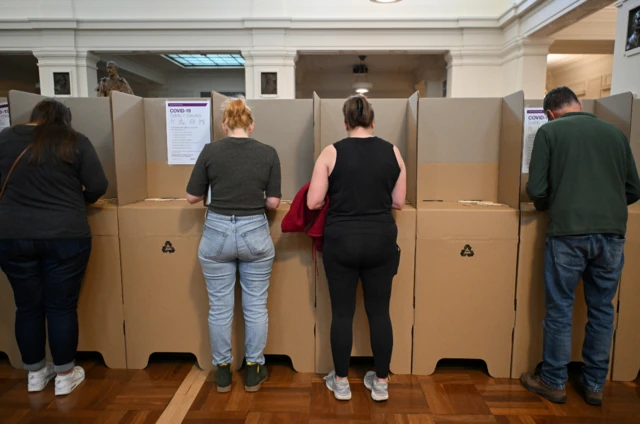 Image source, Reuters
Image source, ReutersVoters at the ballot box at the Old Australian Parliament House in Canberra
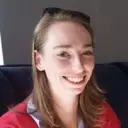 Isabelle Rodd
Isabelle Rodd
Reporting from Sydney/ Gadigal land
I've been talking to voters this morning in the inner-city suburb of Redfern - the heart of Sydney's urban Aboriginal community. The suburb has gentrified in recent years but there remains a large Indigenous community.
Most people here are voting Yes but feeling dispirited by what the polls are suggesting.
Watch: Yes voters ‘not optimistic’ about referendum
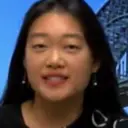 Frances Mao
Frances Mao
Reporting from Sydney/Gadigal land
Thanks for following along so far - but I need to now get out of the newsroom and go vote as there's less than three hours left until polls close.
I'm handing over to my colleagues in Singapore - Ayeshea Perera, Joel Guinto and Derek Cai.
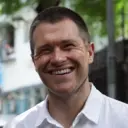 Simon Atkinson
Simon Atkinson
Australia producer, BBC News
At the heart of the Yes campaign’s argument is the idea that the Voice could help tackle what governments refer to as "the entrenched inequality" faced by Aboriginal and Torres Strait Islander people.
Here it’s called the Gap – and there’s a “Closing the Gap” national strategy that has been in place for years.
But when the annual report measuring progress comes out, there is always much hand-wringing about why things aren't improving.
In fact, a recent report found that only four out of 19 national targets were on track to be met. While in four other key areas - adult imprisonment, children in out-of-home care, suicide, and children’s early development - things are actually getting worse.
Yes Campaigners says greater input from First Nations people on-the-ground in communities via a Voice to Parliament, will achieve better outcomes.
Joel Guinto
BBC News
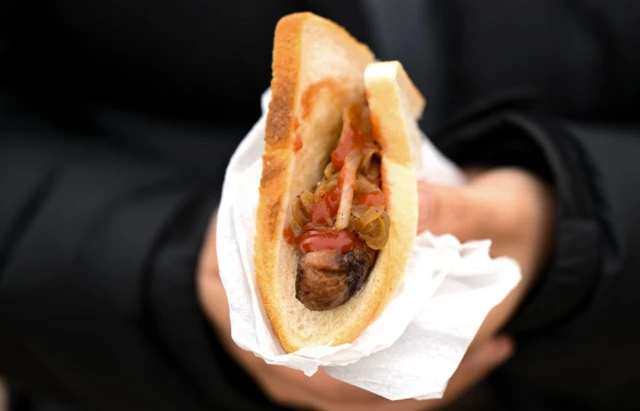 Image source, EPA
Image source, EPAAfter casting their vote, some Australians will also need to decide yes or no to a distinct election day staple - the democracy sausage.
The barbecued sausage served on a slice of bread with tomato sauce, and often onions, are being sold near polling centres. There's even an open source website set up to help voters find the nearest sandwich stall.
A longtime fixture of election days in Australia, democracy sausages grew more popular during the 2016 general elections, so much so that the Australian National Dictionary Centre enshrined the term as its word of the year that same year.
The Voice hasn't only been criticised by people from the right - there is a small camp of Indigenous figures on the left who oppose it too.
Independent senator Lidia Thorpe has been the public face of the "progressive No" campaign. She voted earlier in Melbourne.
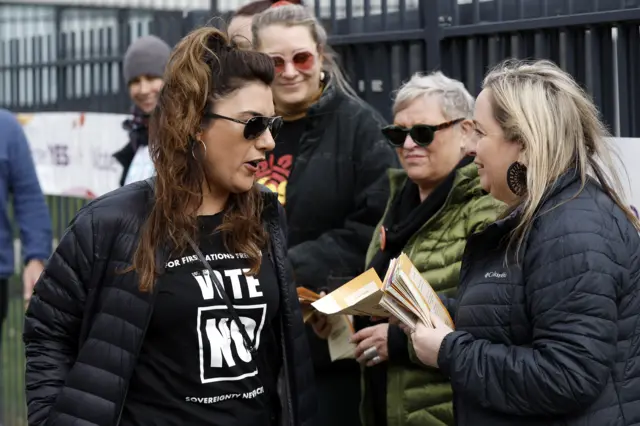 Image source, EPA
Image source, EPALidia Thorpe - one of the most prominent Indigenous campaigners against the Voice - at a polling booth in Melbourne
The DjabWurrung Gunnai Gunditjmara woman says a rejection of the Voice proposal will represent "a victory for the Blak sovereign movement" - which is an Indigenous-led movement that wants to see treaty negotiations prioritised ahead of an advisory body.
“How dare 97% of this country decide our destiny,” she told reporters, adding the referendum had "done nothing but hurt people, divide communities [and] divide families."
 Tiffanie Turnbull
Tiffanie Turnbull
BBC News, Darwin/Larrakia Country
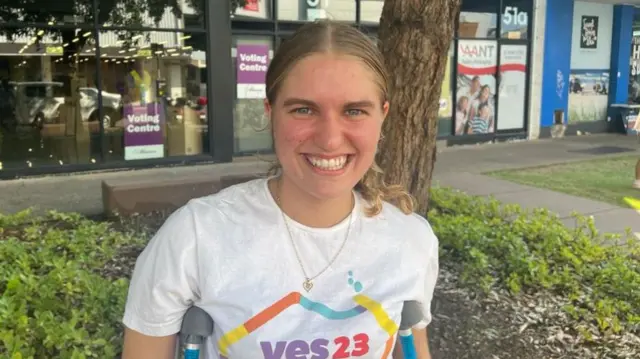
Gabby Francis is 17 years old - she can’t vote by law - but many afternoons after school this week she’s rushed down to pre-polling stations to help campaign for the Voice.
“It'd be nice if I could vote in it... recognising the generational split is a bit frustrating," she says.
That's something I've heard a lot.
Support for the Voice is the highest among youth. Like any group, it’s not universal. But polling suggests about three-quarters of people under 30 will write Yes.
“I am really hopeful that the youth vote will come through and show that Australia is really progressive, and that we are wanting to acknowledge the important role that First Nations people play within our society,” another voter, 30-year-old Brianna told us.
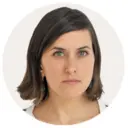 Katy Watson
Katy Watson
Australia correspondent in Sydney
In Kurnell, not far from where Captain Cook first landed in Australia and an area that voted overwhelmingly for Scott Morrison, there are people from the Yes and No camps leafleting voters as they go in.
The only people willing to speak to the BBC about which way they voted are those who chose Yes. Most people are walking away refusing to comment.
But one man, Vincent Common, told us he thought the proposal would cause division, it was badly managed from the beginning and money would be better spent elsewhere.
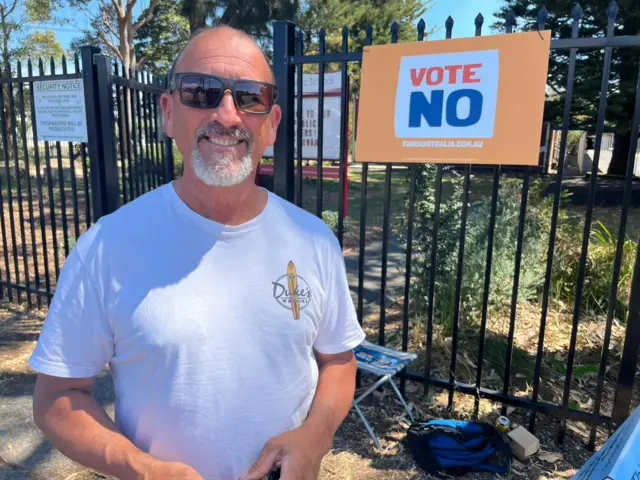
Vincent Common
For years, Australia as a country has measured the inequalities and disadvantages still endured by Aboriginal and Torres Strait Islander people under a national programme called "Closing the Gap".
The government puts out a report every year.
According to the 2022 one, Indigenous Australians are still vastly behind non-Indigenous Australians when it comes to health outcomes, life expectancy, infant mortality rates, employment, and education levels., external
They make up just over 3.8% of the population but account for 32% of all prisoners in Australian jails. And the suicide rate among Indigenous Australians is almost double, external that of non-Indigenous Australians.
The UN's experts on Indigenous people have urged Australians to vote Yes in today's referendum.
"The First Peoples of Australia have a right under international human rights law to participate in decision-making that affects them," said special rapporteurs Jose Francisco Cali Tzay and Surya Deva earlier this week.
They said the Voice to Parliament will help Australia overcome "systemic discrimination and inequalities that have undermined the ability of Indigenous peoples to realise their rights to development and self-determination".
It is not an "unjustified privilege", the experts said in an apparent reference to what many No campaigners have argued. Rather, it is as a "matter of fundamental human rights and justice for historical wrongs."
The BBC spoke to Indigenous Australians from across the country to see what they think of the proposal.
Watch: What do Indigenous Australians think of the Voice referendum?
 Tiffanie Turnbull
Tiffanie Turnbull
Reporting from Darwin/Larrakia Country
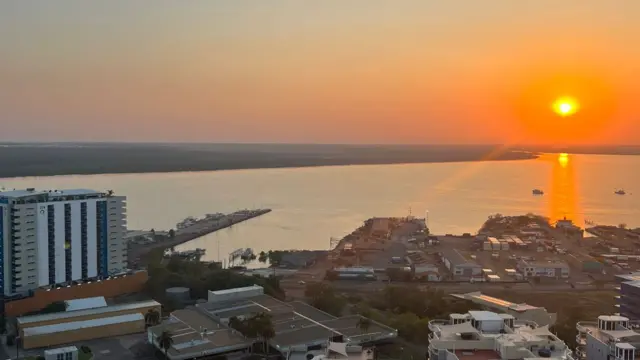
I'm in Darwin, on Larrakia Country in the Northern Territory, where it is an extremely warm 34°.
We’ll be heading out to polling booths across the city today, talking to voters in a part of the country that has often found itself at the centre of this debate.
That's because almost 31% of the population here are Indigenous, and it's the birthplace of the Uluru Statement from the Heart, which sparked calls for this referendum.
Stay with us!
You’ll hear a lot today about a historic document known as the Uluru Statement from the Heart - that’s because it’s where the proposal for the Voice comes from.
Drafted by more than 250 Aboriginal and Torres Strait Islander leaders in 2017, the statement is considered the best - though not unanimous - call to action for reforms which affect First Nations communities.
The document calls for the establishment of a constitutionally-enshrined advisory body, as part of a longer process of treaty-making and truth-telling.
You can read it here., external
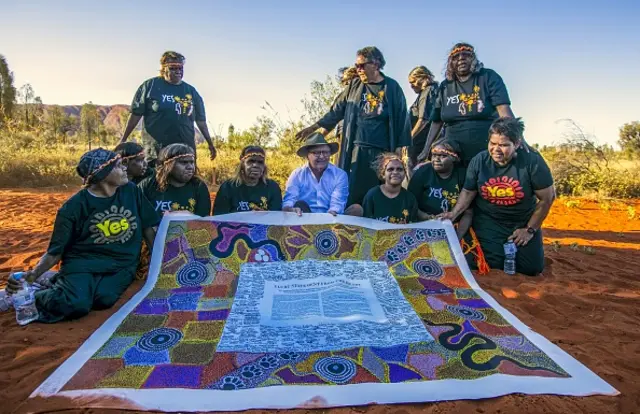 Image source, Getty Images
Image source, Getty ImagesPrime Minister Albanese with Aboriginal leaders holding a copy of the Uluru Statement from the Heart in central Australia last week
Hannah Ritchie
Reporting from Melbourne/Naarm
That’s a tough question to answer because polling on the issue is so limited and the views among communities are so varied.
There are only two opinion polls that have tackled the issue- both found that over 80% of Aboriginal and Torres Strait Islander respondents were in favour of the Voice.
However the surveys were taken before May of this year before the No campaign had launched.
The Voice comes from the Uluru Statement from the Heart, which was drafted by over 250 Indigenous leaders.
But Indigenous-led groups - such as the Blak sovereignty movement - have criticised it as "another powerless advisory body" and they argue treaty negotiations should be prioritised instead.
Voting has already been underway for two weeks but today is the official day.
There are more than 7,000 polling places at schools, community halls and squares across the country, open from 8am-6pm.
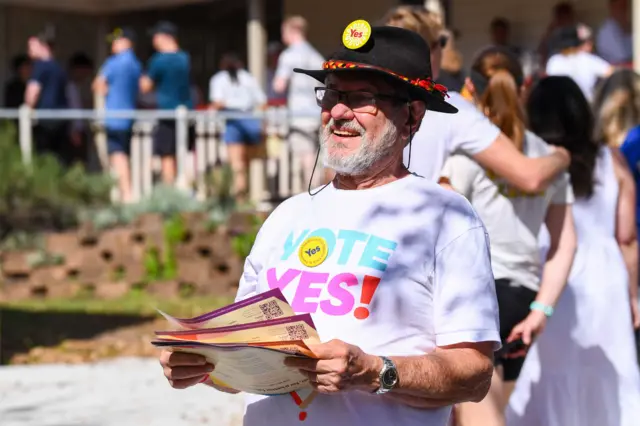 Image source, EPA
Image source, EPAA Yes volunteer hands out informating at a polling booth in Brisbane, Queensland
 Image source, EPA
Image source, EPASignage for the No campaign outside a voting centre in the capital, Canberra
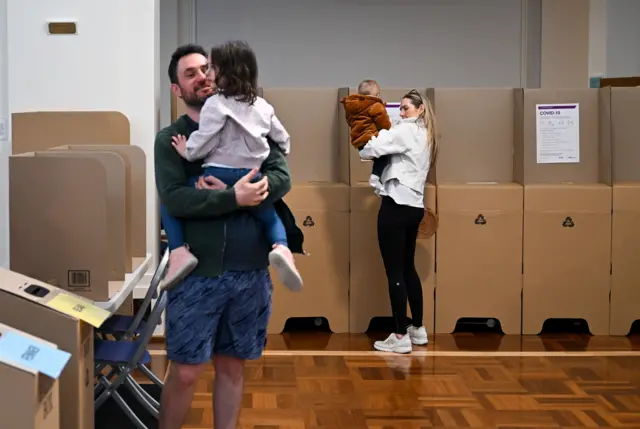 Image source, EPA
Image source, EPASome voters in Brisbane came to polling centres with their kids in tow
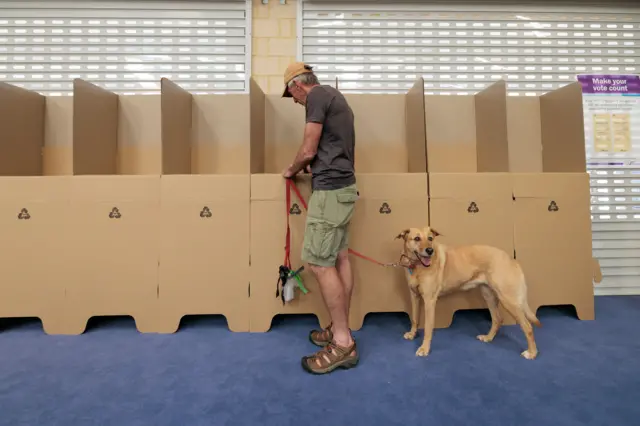 Image source, EPA
Image source, EPAOthers brought their pets - here's the scene from a school in Perth, Western Australia.
 Image source, EPA
Image source, EPAVoters line up at a primary school turned polling centre in Perth
In the past months, polls here have repeatedly shown that a majority of Australians will vote against the Voice.
The No vote ticked over 50% in August and has remained above that level ever since.
The polling has already framed the tone of national discussion here - with Australian media already analysing the perceived failures of the reform's campaign.